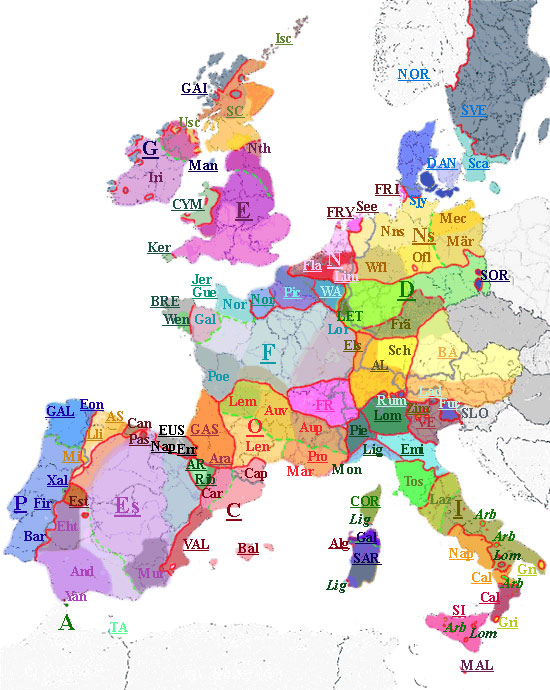This work is the result of others' work as well as our own experience, and of feedback from various channels. Distinctive covers complement our distinctive approach to the Indo-European reconstruction topics, breathing personality and life into this potentially dry subject.
It is not the aim of this book to be an entertainment, though. For some years I have been studying regional dialects and languages, and I know that especially linguistic unity is destructive with a great cultural heritage as is the linguistic diversity.
This Europaio was initially thought to protect the minority languages and dialects. It is impossible to maintain this diversity if one has to learn three or more official languages (those which have a country supporting them) to be a valuable citizen of the European Union. This goal, which begun more or less accidentally (certainly with good intentions) with the European Year of Languages in 2001, seems to be a growing demand, as some politicians still insist on this goal for the future. In this environment of cruel linguistic competition, some minority language communities have been struggling for more popularity, even trying to obtain official status for them before the EU Institutions, while other communities (those which don't have enough population or wealth to be important at an European scale) have chosen not to compete, and either ignore its cultural diversity - thus competing for their national languages-, or directly oppose further European integration as their way of fighting cultural destruction. While the aim of the EU's measures has been the defense of all European languages, it is clearly undermined by the actual policy of giving an extra-official linguistic hierarchy based on the political relevance of its speakers' community.
I cannot imagine a better linguistic future for Europe than this one: a Europe which respects the multiple regional languages, dialects and speeches; which also gives a special official value to the present official languages, as they are important for external relations and commerce (European languages are spoken mainly outside Europe), and for national communication, and they are an important cultural common heritage; and, above all, an Europe where one language, Europaio, is used by all as a right and as a duty; where modernity means unity under one country and one language; where everybody can travel everywhere inside the European borders without having to use third-parties' languages, being able to communicate everything in the own language, feeling thus at home everywhere.
 Linguistic diversity of Western Europe: it includes regional languages, dialects and speeches (the abbreviations used are those of the original language or dialect name). Copyleft © 2006 Dnghu, © 2006 Carlos Quiles [© dgoal]
Linguistic diversity of Western Europe: it includes regional languages, dialects and speeches (the abbreviations used are those of the original language or dialect name). Copyleft © 2006 Dnghu, © 2006 Carlos Quiles [© dgoal]